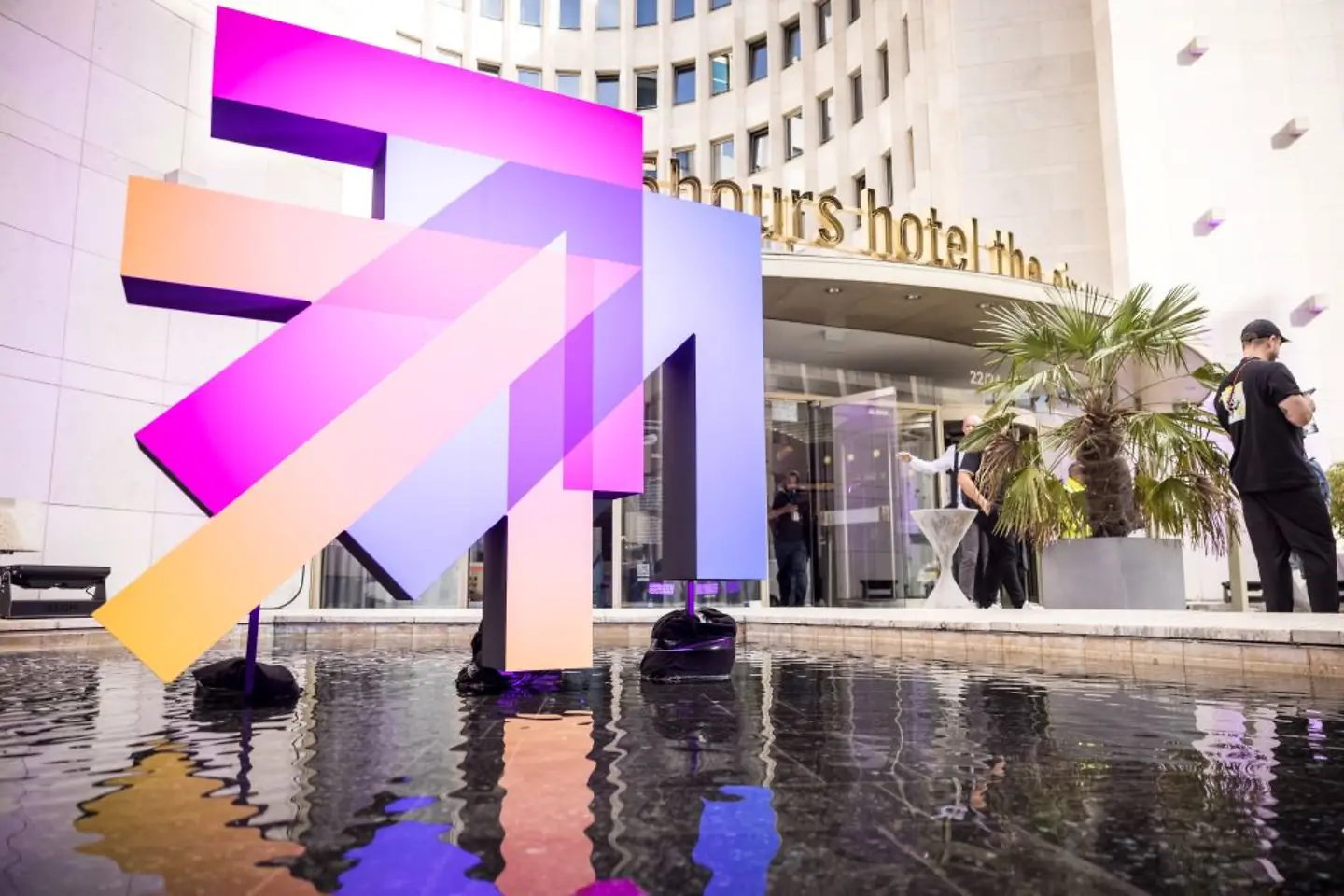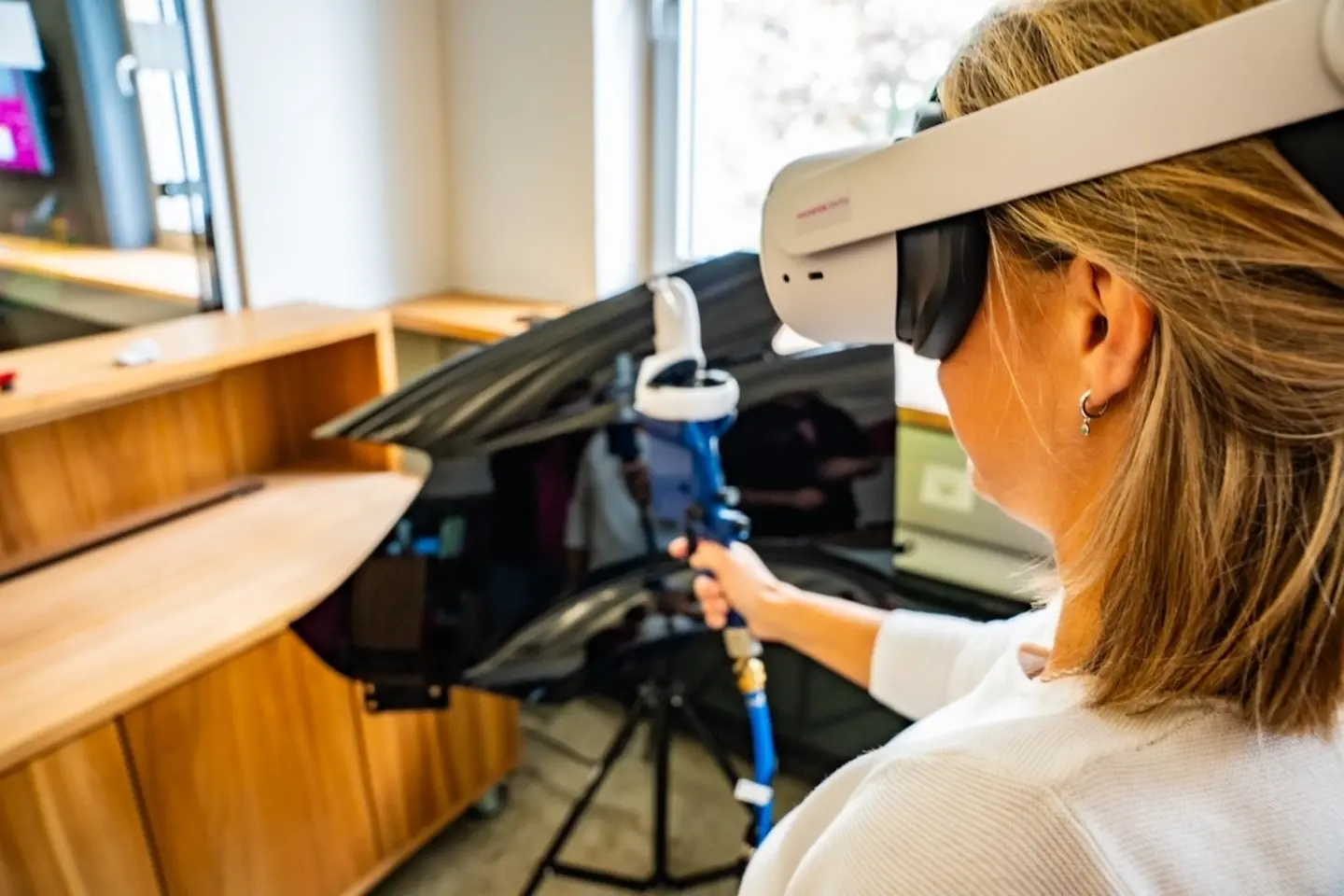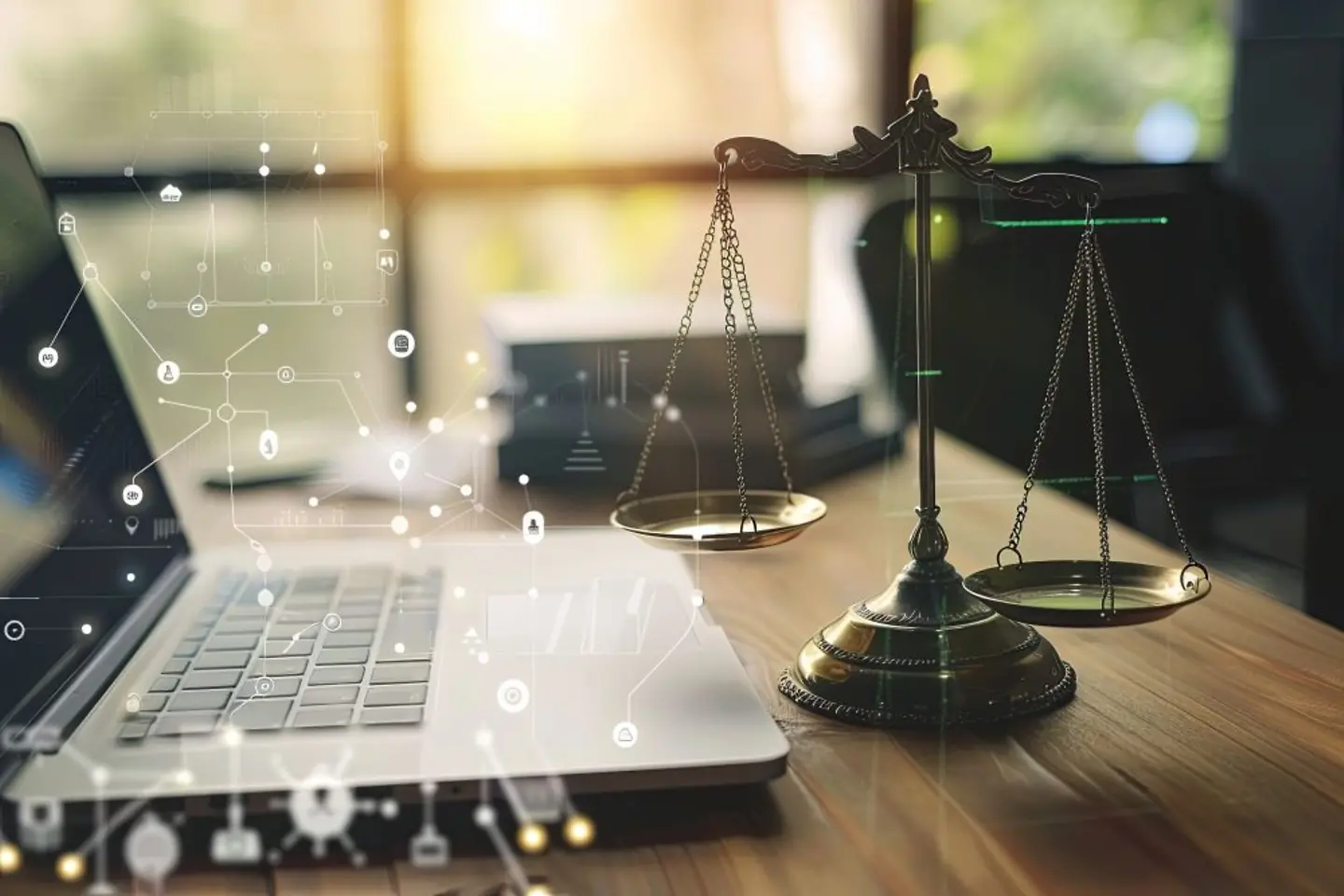
Do you like stories with a happy ending? Me too. After all, it is always great to see what is possible with digitalization. This is exactly what DIGITAL X is all about. This is where lots of positive digitalization stories that are “Made in Germany” are presented. Showing how new technologies – from cloud to AI and quantum computing – offer new business opportunities and make innovations tangible.
I think the motto of DIGITAL X 2024 “Ready for Impact” is very fitting. Digital managers want to make a difference with the transformation, and this desire also drives me as the CTO of T-Systems. My team and I are already setting the technological course for tomorrow, driving innovation, and keeping our IT infrastructure robust and scalable. Our objective is to help customers translate technology into growth opportunities. Future topics such as artificial intelligence, the metaverse, and quantum computing are the key to new business areas, greater resource efficiency, higher productivity, and better customer experiences. Without a strong foundation, no business can be transformed into a digital powerhouse. This is why companies must not neglect basic technologies such as cloud and security.

The cloud is the best stepping stone to greater flexibility and scalability. It enables companies to dynamically adapt IT resources to changing requirements. This increases efficiency and reduces costs. Seamless collaboration options and easy access to central data also promote collaboration and productivity. According to the Multicloud Maturity Index1 from Vanson Bourne and VMware, almost all companies worldwide (95%) agree that multi-cloud architectures will be relevant for business success in the future. But how does a company maintain an overview in such complex environments? How can you quantify the benefits of your own cloud solution, identify potential savings, or implement cost control measures?
These are questions that concern our customers and therefore also me. Our FinOps solution provides customers with an answer. It shows the quality and cost efficiency in a benchmark comparison and provides instructions on how to optimize cloud ROI. The cloud is a must-have technology for any digital powerhouse, if only because it enables digital customer experiences, for example. But what about the metaverse?

The metaverse has gone quiet in the B2C sector. But in the industrial metaverse, our customers benefit from realistic 3D simulations. For example, companies can use the Nvidia Omniverse to set up digital twins of their factories and simulate processes there without having to intervene in real workflows. This enables companies to avoid planning errors in the early development phases. For the manufacturing industry in particular, the excursion into the virtual world is worthwhile because it minimizes the real effort and reduces costs.
The Enterprise Metaverse, in turn, can be used for training processes, product presentations, or in customer service. In the Metaverse Experience Area at our Innovation Center in Munich, visitors can even practice manual skills, such as painting car doors or controlling heavy construction equipment. If you don’t want to travel to Munich to experience future technologies, you can now take a trip into the digital future via avatar in our Virtual Innovation Center, a digital twin of the Innovation Center. Overall, the metaverse offers new dimensions of digital reality and a wide range of application options.
Everyone is talking about artificial intelligence. No wonder: if at least half of German companies used systems with generative AI functions, the added value of our economy would increase by around 330 billion euros. This result was calculated by the research institute IW Consult2 on behalf of Google. Who wants to miss out on such growth opportunities? Companies want to use artificial intelligence to work more productively, reduce error rates, cut costs, optimize processes, or tap into new markets. But they often don’t know how to get started. This is also one reason why I recommend all companies visit DIGITAL X. Because this is exactly where we show the real AI success stories.

On September 18 and 19 in Cologne, experience how AI optimizes production systems in logistics and networks employees along the process chain so that smooth processes become a competitive advantage. Or how retailers use it to organize internal store processes and ensure greater transparency between suppliers and service providers.
We show you how our AI service “Law Monitor” monitors topic-specific legislative changes worldwide and clearly summarizes their implications for individual industries. This ranges from new import and sales bans to declaration requirements, to environmental regulations, or tax rates. At DIGITAL X, customers who work with sensitive data will experience how much easier our superior AI chatbot can make their work. And if you want to test for yourself how real conversations with AI avatars feel, you've come to the right place.
It is clear to us – artificial intelligence is not just hype. AI will soon be an integral part of every technology, because only with AI can the maximum added value be derived from every technology. AI is also widely used at T-Systems – whether in HR, finance, or sales. AI helps our software developers translate old programming languages into current codes based on different large language models (LLMs). You can achieve time savings of up to 40% here.
An example: For one of our customers, a leading global manufacturer of logistics automation, AI is the ideal complement to its IoT strategy. Since 2021, we have been working with the customer on their cloud environment, including an IoT and big data platform. IoT sensors mounted on the customer’s high-bay loaders or sorting systems measure parameters such as temperature, vibration, or acceleration and show the performance and availability of the systems in real time. AI increases the value creation lever once again. Because where big data reaches its limits, artificial intelligence is now taking over. AI algorithms and machine learning automate and improve data analysis, help to recognize patterns and anomalies, and make even more precise predictions about maintenance requirements. This eliminates downtime due to overheating and costly repairs.
There’s no question about it: with LLMs and ChatGPT, the magic of AI can really be felt. According to the study Innovation Catalysts3 from Dell Technologies, 81 percent of companies worldwide believe that generative AI will significantly change the majority of industries. However, AI excellence requires more than just a convincing front end. Without a robust and scalable cloud and security strategy, growth will fail to materialize. Many of our customers neither have the capacity nor the permissions to use LLMs for data protection reasons. This means – we want to make it as easy as possible for our customers to benefit from the advantages of GenAI.

That’s why we have developed AI Foundational Services – our AI one-stop shop. It gives companies the opportunity to become AI-capable in the shortest possible time, because everything from infrastructure to specific applications can be found here. This allows customized solutions to be put together according to individual requirements, entirely in compliance with the highest security and data protection standards, of course. For example, customers can seamlessly access both proprietary and open-source LLMs and combine their applications. Using our Retrieval-Augmented Generation (RAG) engine, customers can augment large language models with proprietary knowledge sources. This allows them to generate more accurate and up-to-date answers for their own AI applications without having to retrain the model. Chatbot blueprints can also be used to develop customized AI assistants that are precisely tailored to individual requirements and processes.

This solution also makes it easier for the public sector to enter the world of artificial intelligence. Our AI assistant for the public sector accesses a curated knowledge database containing government-specific documents, laws, and regulations. Our RAG engine generates precise answers based on verified sources and avoids AI hallucinations. Citizens can submit their requests not only as text, but also as image or voice prompts – to identify forms or locate buildings, for example. All data remains in the controlled environment of the public authority. Thanks to our European cloud infrastructure, these advanced AI capabilities can be used in compliance with GDPR and independently of non-European providers. Sustainable success, particularly with a focus on the upcoming quantum era, requires well thought-out and coordinated end-to-end solutions like these – from the cloud down to the code.
Bits, 1s, and 0s – that’s classic computing. A quantum computer, on the other hand, is a specialized “chip”. Similar to a GPU, such a computer is good for certain applications. The actual computing power is generated by quantum mechanical effects created by quantum bits, called “qubits”, and properties called superposition and entanglement. This means that these qubits can assume any number of states between 0 and 1. Quantum computing has especially exciting potential in areas where today’s computers and supercomputers do not deliver good enough results. Relevant fields include cryptography (in particular RSA encryption), AI, and simulations of materials or chemical substances including pharmaceuticals.
At T-Systems, quantum computers are already part of a multi-cloud; they will not replace traditional computing, but rather complement it in the cases described above. It is, therefore, worth learning and practicing how to use this technology today. It requires special expertise, a strategy for implementation, and also organizational adjustments. And, therefore, time to prepare for the technology.

It has to be said that while quantum technology is currently in transition from research to application, the computers are not yet perfect. However, we see many major players actively working with and on this, such as the Quantum Technology and Application Consortium: QUTAC. These are 14 DAX companies that are driving quantum computing into industrial applications. At the same time, quantum-inspired systems – i.e., classic chips that essentially simulate a quantum computer – are already generating added value today. We can build solutions on them, test them, and later move them to real quantum computers. At Deutsche Telekom, for example, we use them to plan the placement of our mobile phone antennas. The result: we are faster and more efficient than we would be using the comparable classic solution. We are already saving time, electricity, and money with quantum computing.
Statista expects the global quantum computing market to be worth more than 280 million US dollars in 2024. The age of the quantum era is coming, and preparation is everything. For example, we offer our customers various workshops, from one-day introductions to proofs of concept. This enables us to find and test individual application possibilities and compare them with existing solutions. The quantum computers of our partners, such as IBM, can also be used to test applications such as quantum-secure encryption methods or the simulation and analysis of chemical reactions, which are still largely unexplored due to their complexity.
If you would like to read up on the basics and the status quo of quantum technology, I recommend the article by my colleague Maximilian Walz.

In the course of my career, I have learned that technology transformation is above all a people business. Technological breakthroughs thrive on courage, curiosity, drive, and confidence. Many US start-ups have dominated the market with their “first mover” mentality. After all, first come, first served. In contrast, a “fast follower” only jumps onto the bandwagon when it is already in full swing and an attractive target is in sight. The advantage: fast followers dock onto promising business areas and save themselves the often rocky road that the pioneers have already traveled. But that is also the disadvantage, because they miss out on the learning and testing phase, which provides important experience. You don’t necessarily have to be a first mover, but I would at least like to see more fast follower thinkers in Germany when it comes to using new technologies. According to Bitkom4, 15 percent of companies now use AI. The majority, however, are still missing out on opportunities. A full 29 percent of the companies surveyed see AI as a hype that is overestimated.

My opinion: with AI, we are on the brink of a technological revolution that will be further fueled by quantum computing in the coming years. These cutting-edge technologies will turn entire industries upside down. And now imagine the possibilities that arise when super-smart algorithms meet unimagined computing power. The interaction between AI and quantum computers is often referred to as “AI on steroids”. This is why companies need to utilize and experiment with innovative technologies right now in order to secure their competitive edge and maintain control. We show them the way and keep an eye on future technologies together. Would you like to try out quantum computing for yourself with our “Qoffee Maker”? Or experience the range of possible applications for artificial intelligence, hyperautomation, and the metaverse firsthand? Then I look forward to seeing you at DIGITAL X in Cologne.
1 Multicloud Maturity Index, 2022, Vanson Bourne on behalf of VMWare
2 Der digitale Faktor – Wie Deutschland von intelligenten Technologien profitiert (The Digital Factor – How Germany Benefits from Intelligent Technologies), IW Consult on behalf of Google, 2024, www.iwconsult.de
3 Innovation Catalysts Study, 2024, ww.delltechnologies.com
4 Deutsche Wirtschaft drückt bei Künstlicher Intelligenz aufs Tempo (The German Economy Moves It Up a Gear with Artificial Intelligence), 2023, www.bitkom.org